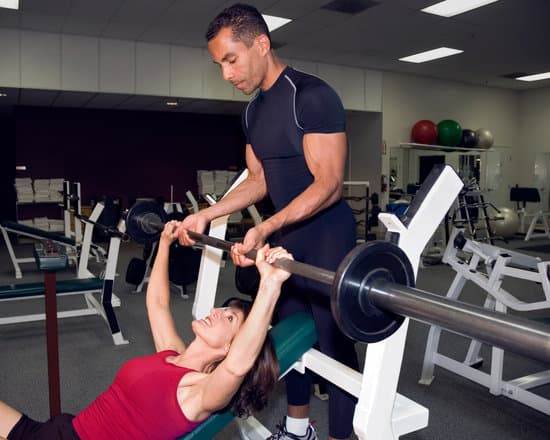Physical fitness is not only essential for our physical health, but it also greatly impacts our social interactions and overall well-being. When we think about the benefits of physical fitness, we often focus on aspects such as weight management, strength, and cardiovascular health. However, the social benefits of physical fitness are just as significant.
In today’s fast-paced, technology-driven world, many individuals find themselves becoming increasingly isolated and disconnected from others. Incorporating regular exercise into our lives can help combat this trend by promoting social interactions and enhancing our relationships with others. Whether it’s participating in group workouts or joining sports clubs or fitness classes, physical fitness activities provide opportunities to meet new people, foster camaraderie, and expand our social networks.
Engaging in physical activities also boosts our self-confidence and self-esteem. Regular exercise helps improve our physical appearance, which in turn can enhance how we feel about ourselves. When we are more confident in our own skin, we tend to be more comfortable engaging with others socially and building meaningful connections.
Furthermore, physical fitness increases energy levels and stamina, allowing us to actively participate in social activities with enthusiasm. When we have the energy to engage with others both mentally and physically, it significantly enhances the quality of our interactions. We become more present and attentive in conversations and better able to connect with those around us.
Health benefits of physical fitness
Regular physical fitness has been proven to have numerous health benefits that can significantly improve overall well-being and lead to a reduced incidence of diseases. Engaging in regular exercise and maintaining physical fitness levels can enhance an individual’s quality of life, both physically and mentally. This section will highlight the various health benefits associated with physical fitness, illustrating how it contributes to better social interactions.
Reduced Risk of Chronic Diseases
Physical fitness plays a crucial role in preventing chronic diseases such as heart disease, diabetes, and certain types of cancer. Regular exercise helps regulate blood pressure and cholesterol levels, strengthens the cardiovascular system, and improves respiratory function. By reducing the risk of these illnesses, individuals are better able to maintain an active lifestyle and engage in social activities without being limited by their health conditions.
Improved Immune System
Engaging in regular physical activity enhances the immune system, making individuals less susceptible to infections and illnesses. Exercise promotes efficient blood circulation, which allows immune cells to move throughout the body more effectively. Additionally, physical fitness improves lung function and increases oxygen intake, boosting immune responses. When individuals are healthy physically, they are more likely to participate in social events and spend quality time with others.
Enhanced Mental Well-being
Physical fitness not only affects an individual’s physical health but also has a significant impact on mental well-being. Regular exercise stimulates the release of endorphins – chemicals in the brain that elevate mood and reduce feelings of stress or anxiety. It also improves sleep patterns and increases cognitive function. As mental health is closely linked to social interactions, maintaining good mental well-being through physical fitness can positively influence one’s ability to engage socially.
Boosting self-confidence
Regular exercise not only has numerous health benefits but also has a significant impact on an individual’s self-confidence, which in turn improves their social interactions and relationships. When people engage in physical fitness activities, they often experience positive changes in their body composition, strength, and overall physical appearance. These changes can enhance their self-esteem and self-confidence levels, making them feel more comfortable and secure in social settings.
One way that regular exercise boosts self-confidence is by improving a person’s body image. Engaging in physical fitness activities can help individuals achieve their desired physique or improve their overall fitness level. As a result, they may feel more confident about their bodies and how they present themselves to others. This increased confidence can lead to better social interactions as individuals feel more at ease and less self-conscious about their appearance.
Furthermore, regular exercise contributes to improved mental well-being, which also plays a crucial role in boosting self-confidence. Physical activity releases endorphins, known as the “feel-good” hormones, which have been linked to elevated mood and reduced anxiety and depression levels. When individuals are mentally healthy and free from negative thoughts or emotions, they can approach social situations with greater ease and self-assurance.
To illustrate the impact of regular exercise on self-confidence, research has shown that individuals who engage in physical fitness activities report higher levels of self-esteem compared to those who lead sedentary lifestyles. A study published in the Journal of Behavioral Medicine found that even short bouts of exercise significantly increased participants’ feelings of competence and body attractiveness.
| Benefit | Data |
|---|---|
| Positive impact on self-esteem | Individuals who engage in physical fitness activities report higher levels of self-esteem compared to those who lead sedentary lifestyles |
| Elevated mood and reduced anxiety and depression levels | Physical activity releases endorphins, known as the “feel-good” hormones, which have been linked to elevated mood and reduced anxiety and depression levels. |
Increased energy levels
Regular physical fitness has been found to significantly increase stamina and energy levels, allowing individuals to actively participate in social activities and engage with others. When our bodies are physically fit, we experience higher levels of endurance and vitality, which directly translate into increased energy for social interactions.
One of the primary ways physical fitness enhances energy levels is through improved cardiovascular health. Engaging in aerobic exercises such as running, swimming, or cycling strengthens the heart and lungs, enabling them to efficiently transport oxygen throughout the body. This increased oxygen supply to the muscles and organs leads to enhanced energy production, allowing individuals to participate in social activities for longer periods without feeling fatigued.
In addition to improved cardiovascular health, regular exercise also boosts the production of endorphins – chemicals in the brain that act as natural mood elevators. These endorphins not only enhance our overall sense of well-being but also provide a natural energy boost. Studies have shown that individuals who engage in moderate-intensity exercise on a regular basis report feeling more energized throughout the day compared to those who lead sedentary lifestyles.
To fully capitalize on the increased energy levels from physical fitness, individuals should consider incorporating specific types of exercises tailored to their personal preferences and interests. For some, this may mean participating in team sports like soccer or basketball that involve bursts of intense activity and require quick movements. For others, dance classes or group workouts may be more suitable options for staying active while enjoying social interactions with like-minded individuals.
By maintaining good physical fitness levels and increasing stamina and energy, individuals can actively participate in social activities with enthusiasm and vitality. Whether it’s joining a hiking club, attending dance classes, or simply engaging in outdoor games with friends and family, physical fitness enables us to make the most of our social connections by being present and actively involved.
- Improved cardiovascular health leads to efficient oxygen transport throughout the body
- Increased production of endorphins, natural mood elevators
- Engagement in specific exercises tailored to individual preferences and interests
Stress relief and improved mental health
Regular physical fitness activities have been proven to have a significant positive impact on mental wellbeing, including stress relief and the reduction of anxiety and depression. Engaging in exercise releases endorphins, which are known as “feel-good” hormones that promote a sense of happiness and contentment. The release of these endorphins during exercise helps to alleviate stress and enhance mood, leading to improved mental health.
When individuals experience lower levels of stress and anxiety, they are more likely to engage in social interactions with others. Exercise provides an outlet for individuals to channel their negative emotions and redirect their focus towards achieving their fitness goals. This redirection allows them to approach social interactions with a clearer mindset and more positivity, leading to better communication, empathy, and overall social connections.
Furthermore, the positive impact of exercise on mental wellbeing can also help combat feelings of loneliness or isolation that are often experienced by individuals struggling with mental health issues. Engaging in physical fitness activities that involve group workouts or joining fitness communities provides opportunities for social interaction and connection with others who share similar interests. Through shared experiences and support from fellow participants, individuals can develop meaningful friendships and a sense of belonging, ultimately improving their overall social wellbeing.
To maximize the social benefits of physical fitness for mental health improvement, it is recommended to incorporate various types of exercises that suit individual preferences. These may include outdoor activities such as hiking or cycling with friends or joining group workout classes at local gyms. Additionally, participating in sports clubs or team sports can provide a sense of camaraderie and competition while fostering social connections.
Overall, incorporating regular physical fitness activities into one’s routine has profound effects on mental wellbeing by reducing stress, anxiety, and depression. By positively affecting an individual’s mental state, exercise enhances social interactions by improving communication skills, fostering connections through shared experiences in group settings, combating feelings of loneliness or isolation, and promoting overall positive social behavior.
Community engagement through fitness
Meeting new people and building relationships
One of the key social benefits of engaging in physical fitness activities is the opportunity to meet new people and build meaningful relationships. Activities such as group workouts, sports clubs, or fitness classes provide a platform where individuals with similar interests can come together and connect. Whether it’s joining a running club or participating in group yoga sessions, these activities create an environment that encourages social interactions and fosters camaraderie.
Being part of a fitness community allows individuals to form bonds with like-minded people who share a common passion for health and wellness. Through regular interaction during workouts or training sessions, people can develop friendships and establish support systems that extend beyond the exercise setting. This sense of community offers emotional support, motivation, and accountability, which are crucial factors in maintaining long-term fitness goals.
Expanding social networks
Engaging in physical fitness activities also presents opportunities to expand one’s social network. Fitness events or competitions bring individuals from diverse backgrounds together, creating an inclusive space where people can connect regardless of their age, gender, or cultural background. Attending these events introduces individuals to others who may have different experiences and perspectives, fostering a sense of understanding and acceptance.
Moreover, participating in group workouts or fitness classes often involves working alongside others towards common goals. This shared experience builds teamwork skills and promotes cooperation among participants. These interactions can lead to the formation of valuable connections that extend beyond the realm of fitness itself. By expanding their social networks through physical fitness activities, individuals open themselves up to new friendships, professional connections, and potential collaborations.
Fostering social well-being
Engaging in physical fitness activities provides numerous benefits for social well-being. Regular exercise helps combat feelings of isolation and loneliness by providing opportunities for positive social interactions. The connections formed during these activities contribute to increased satisfaction with personal relationships and overall well-being.
Participating in physical fitness activities as a group can also contribute to improved mental health. The shared experiences and support from others during challenging workouts or training sessions create a sense of belonging and purpose. This, in turn, can alleviate symptoms of stress, anxiety, and depression. When individuals feel emotionally stable and content, they are more likely to engage confidently in social interactions and develop healthier relationships.
Social support and accountability
Regular physical fitness not only improves our physical health but also has significant social benefits. One crucial aspect of enhancing the social aspect of physical fitness is the role of social support and accountability. Having workout partners or joining fitness communities can provide motivation, encouragement, and a sense of belonging, leading to better engagement and enjoyment of physical activities.
The presence of workout partners or participating in fitness communities can significantly impact an individual’s adherence to their exercise routine. Research has shown that individuals who work out with others tend to have higher levels of motivation and commitment compared to those who exercise alone. The support and encouragement from workout partners can provide that extra push needed to stay consistent and overcome challenges along the way.
In addition to motivation, having workout partners or being part of a fitness community creates a sense of accountability. When you know that others are relying on you, it becomes more difficult to skip workouts or give up on your fitness goals. This accountability fosters a sense of responsibility not just towards oneself but also towards the group, further strengthening the social aspect of physical fitness.
Moreover, workout partners or fitness communities offer a supportive environment where individuals can share their experiences, challenges, and achievements. This creates a sense of belonging and camaraderie among members, leading to stronger social connections and friendships. Engaging in physical activities together not only promotes teamwork but also provides an opportunity for individuals to learn from one another and exchange knowledge about different exercises, techniques, and healthy habits.
| Statistics | Data |
|---|---|
| Percentage of people who prefer working out with a partner | 72% |
| Effectiveness in achieving goals when supported by others | 65% |
| Increase in workout duration with a partner compared to exercising alone | 35% |
Bridging social gaps and fostering inclusivity
Physical fitness activities have the unique ability to bring individuals from diverse backgrounds and cultures together, breaking down barriers and promoting social cohesion. Engaging in physical fitness not only benefits one’s health and well-being but also provides an opportunity for people to connect and interact with others who they may not have otherwise crossed paths with.
One way that physical fitness bridges social gaps is by creating shared spaces. Fitness centers, parks, or sports facilities often serve as spaces where people from all walks of life come together to exercise and pursue their wellness goals. In these environments, individuals are able to interact with others who may have different cultural backgrounds or lifestyles, fostering a sense of inclusivity and openness.
Furthermore, physical fitness activities provide opportunities for teamwork and collaboration. Sports teams, group workouts, or fitness classes often require participants to work together toward a common goal. Through these shared experiences, individuals are given the chance to develop empathy, understanding, and respect for one another regardless of their background or cultural differences.
Additionally, physical fitness can be a platform for promoting social integration and breaking down stereotypes. By participating in various fitness activities alongside individuals from different backgrounds, people gain firsthand experience that challenges preconceived notions or biases they may hold about certain groups. This exposure helps promote mutual understanding and appreciation for diversity within communities.
Positive role modeling and inspiring others
Physical fitness not only benefits individuals on a personal level, but it can also have a significant impact on the social interactions and relationships within their circles. When individuals prioritize physical fitness and make it a part of their lifestyle, they become positive role models for those around them, inspiring and motivating others to adopt healthier behaviors and engage in physical activities.
One way that individuals who prioritize physical fitness inspire others is through their visible transformation. When friends, family members, or colleagues witness the positive changes in someone’s physical appearance as a result of regular exercise and healthy habits, they are more likely to be inspired to follow suit. The act of witnessing the progress made by someone they know creates a sense of possibility and belief that they too can achieve similar results.
Furthermore, individuals who prioritize physical fitness often demonstrate increased energy levels, vitality, and enthusiasm in their daily lives. This newfound energy radiates through their interactions with others. They become more engaged listeners, active participants in social activities, and overall exude positivity. This change in demeanor can be contagious, encouraging others to seek out the same level of enthusiasm and fulfillment through incorporating physical activity into their routines.
Moreover, individuals who prioritize physical fitness often become sources of knowledge and information regarding exercise routines, nutrition tips, and overall wellness practices. They share their experiences with others and provide guidance on how to get started or overcome obstacles related to embarking on a fitness journey. Their willingness to offer support and advice inspires others to take the first step toward adopting healthier lifestyles.
Conclusion
Overall, physical fitness has a profound impact on various aspects of our lives, including social interactions. By improving overall health, physical fitness reduces the incidence of diseases and improves quality of life. Regular exercise also boosts self-confidence, enhancing social interactions and building better relationships. Additionally, increased energy levels resulting from physical fitness enable individuals to actively participate in social activities and engage with others.
Moreover, physical fitness plays a significant role in stress relief and improved mental health. Exercise has been proven to reduce stress, anxiety, and depression, thereby positively affecting social interactions. In addition to its individual benefits, physical fitness also promotes community engagement. Group workouts, sports clubs, and fitness classes provide opportunities to meet new people, foster camaraderie, and expand social networks.
Furthermore, physical fitness offers social support and accountability through workout partners or joining fitness communities. These connections provide motivation, encouragement, and a sense of belonging-enhancing the social aspect of physical fitness. Importantly, physical fitness activities can bridge social gaps by bringing together individuals from diverse backgrounds and cultures. By breaking barriers and promoting social cohesion through shared experiences such as sports or team workouts.
Lastly, prioritizing physical fitness can serve as positive role modeling – inspiring others within our social circles to adopt healthier lifestyles and engage in physical activities themselves. By leading through example, we have the power to motivate others towards positive change.
In conclusion, the social benefits of physical fitness are plentiful. From improved self-esteem to enhanced relationships with others in our communities-the advantages extend far beyond just the personal gains realized through exercise. Therefore readers are encouraged to prioritize their own fitness journey to experience these advantages firsthand in their personal lives.

Passionate about providing useful information to anyone with an interest in the field of Personal Training, I strive to pass on to our readers quality information and to answer any questions about Personal Trainers, the work they do and how to become one.





